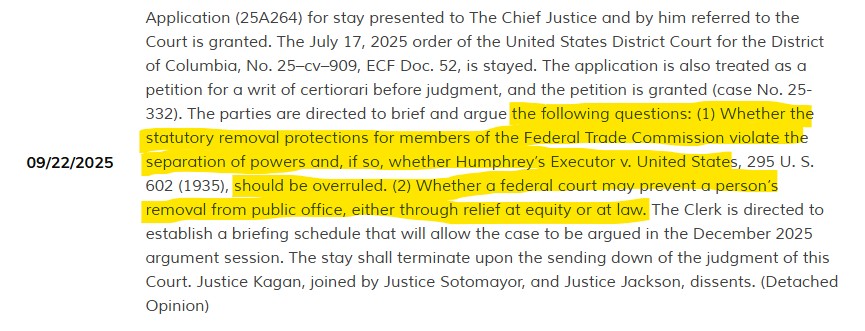
work @EPPCdc; blog @NRO Bench Memos; Confirmation Tales substack; co-editor (1) SCALIA SPEAKS, (2) ON FAITH, (3) THE ESSENTIAL SCALIA
15 subscribers
How to get URL link on X (Twitter) App




https://twitter.com/kyledcheney/status/1942345612906594650The lead count in Planned Parenthood's complaint is, believe it or not, bill of attainder. What more do you need to know about how baseless this complaint is?


 More from WSJ: "President Trump is expert at downplaying his failures, but attacking his own success is something new.... Mr. Trump is attacking the group, and especially the man in Leonard Leo, that were vital to his first-term success on judicial nominations. Mr. Leo helped Mr. Trump pull together his list of potential Supreme Court nominees during the 2016 presidential campaign. The list was crucial in reassuring conservative voters that he could be trusted on judges."
More from WSJ: "President Trump is expert at downplaying his failures, but attacking his own success is something new.... Mr. Trump is attacking the group, and especially the man in Leonard Leo, that were vital to his first-term success on judicial nominations. Mr. Leo helped Mr. Trump pull together his list of potential Supreme Court nominees during the 2016 presidential campaign. The list was crucial in reassuring conservative voters that he could be trusted on judges."